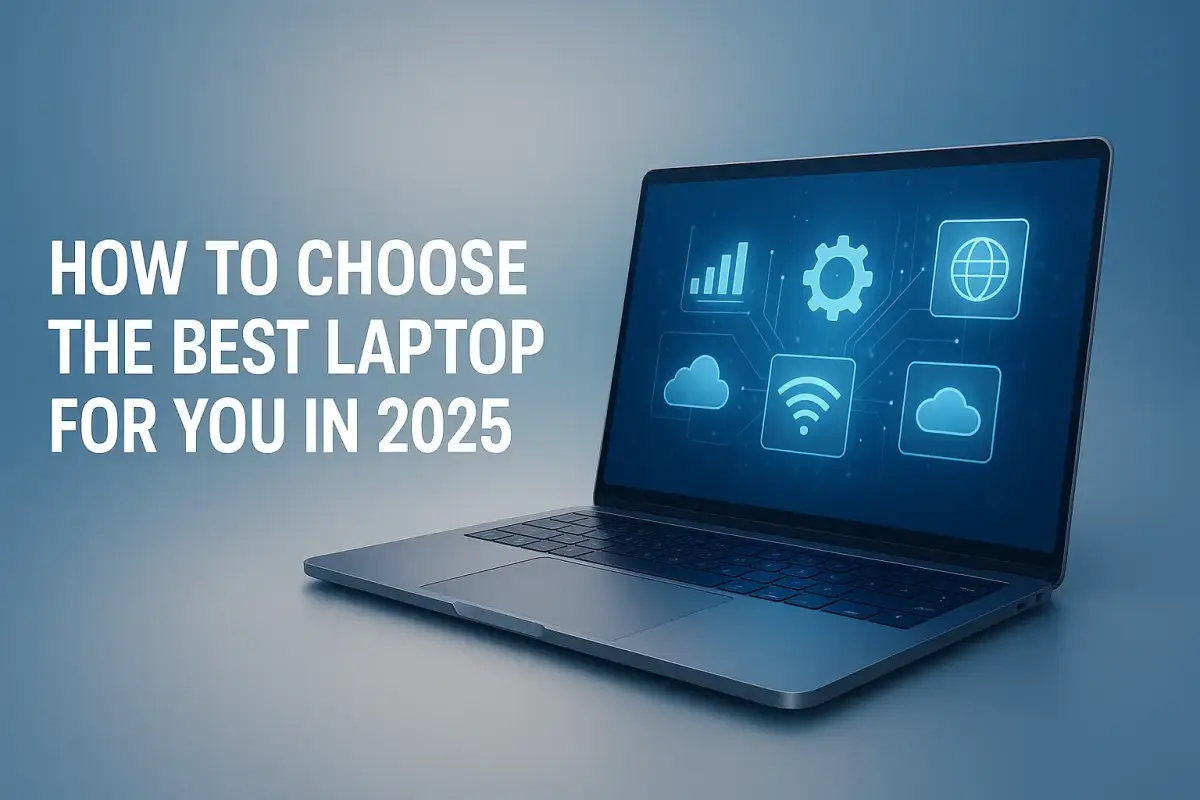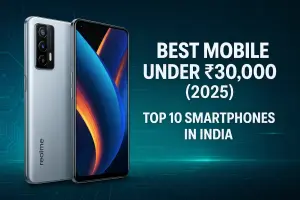In 2025, finding the perfect laptop can be challenging. Whether you're a student, professional, gamer, or creative, knowing what you need and the most important features will help you make a smart choice. This guide outlines key factors to consider when purchasing a laptop to suit your needs and lifestyle.
Types of Users: Understanding Your Needs
Students
Battery life and portability are essential. You need a lightweight laptop that can last through long lectures and study sessions without running out of power. Durability and cost are also important considerations.
Professionals
If your work demands heavy computing power, look for good performance. For handling sensitive data, large files, or multitasking, prioritize processing power, storage, and security features.
Gamers
To enjoy seamless and immersive gaming, choose laptops with fast processors, high-performance graphics cards, and high refresh rate displays.
Creatives
If you work in graphic design, video editing, or digital art, look for laptops with high-resolution displays, accurate color reproduction, and powerful GPUs to handle demanding creative software.
Key Specs to Consider
- Processor (CPU): For basic tasks, Intel Core i3 or AMD Ryzen 3 suffice. For gaming, video editing, or professional work, aim for at least Intel Core i7 or AMD Ryzen 7.
- RAM: 8GB is adequate for most users, but 16GB is better for gaming, multitasking, or heavy browsing.
- Storage: SSDs are faster and more reliable than HDDs. Aim for at least 256GB SSD or a hybrid setup if you need more space.
- Display: Full HD (1920×1080) is sufficient for most. Creatives might prefer 4K for better detail and color accuracy. Consider screen size based on productivity and portability.
- Battery Life: Look for laptops with at least 8 hours of battery life to last through your workday.
- Graphics (GPU): Integrated graphics are fine for everyday use. Gamers and creatives should opt for dedicated GPUs like NVIDIA RTX or AMD Radeon RX series.
- Portability: If you travel often, choose laptops under 3 pounds with slim profiles for easy carrying.
- Operating System (OS): Windows offers broad compatibility, macOS is popular among creatives, and Chrome OS suits cloud-based tasks.
- Connectivity: Ensure the laptop has necessary ports (USB-C, USB-A, HDMI, headphone jack) and supports Wi-Fi 6/6E/7 and Bluetooth 5.0 or higher for fast, reliable wireless connections.
- Build Quality & Security: Durable materials like aluminum or magnesium alloy are ideal for travelers. Features like fingerprint readers, facial recognition, and TPM chips enhance security.
- Touch and 2-in-1 Options: Consider if you want a touchscreen or convertible laptop for drawing, note-taking, or tablet use, though these can add bulk and cost.
Budget Considerations
Create a budget aligned with your needs:
- Low-end laptops: Around $500, suitable for students and basic tasks.
- Mid-range laptops: $700–$1200, offering better performance for professionals and casual gamers.
- High-end laptops: Over $1500, designed for gamers, creatives, and power users needing top specs.
Brand Reputation
Look for brands known for reliability and good customer support. Apple, Dell, HP, Lenovo, and ASUS consistently receive positive reviews for sturdy builds and responsive service. Ensure warranty and service centers are accessible in your area.
Tips for Longevity
- Buy hardware slightly more powerful than your current needs to accommodate future software upgrades.
- Look for laptops with upgradeable RAM or storage to extend usability.
- Test laptops in physical stores if possible to check keyboard comfort, trackpad responsiveness, and display quality.
- Read reviews from reputable sources to gauge real-world performance and user satisfaction.
- Check warranty options to ensure you're covered for defects or issues.
Checklist for Choosing Your Laptop
- Identify your primary use (student, work, gaming, creative).
- Choose suitable RAM and processor for your tasks.
- Prioritize SSD storage with ample capacity.
- Select a display size and resolution that fits your work and travel needs.
- Ensure battery life of at least 8 hours.
- Opt for a dedicated GPU if gaming or creative work requires it.
- Check connectivity options and build quality.
- Verify OS compatibility with your preferred software.
- Stick to your budget.
- Consider brand reputation and after-sales support.
- Look for upgradeable features for future-proofing.
By carefully considering these factors, you can select a laptop that meets your current needs and remains relevant in the future. Enjoy your shopping!


